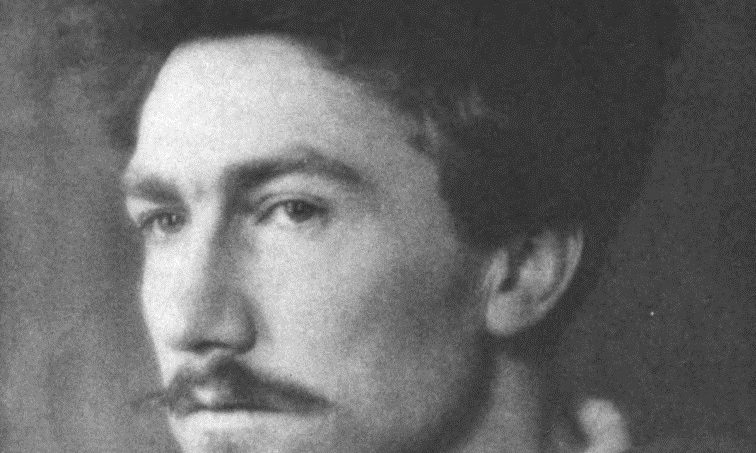It seems the only thing more pretentious than quoting Ezra Pound is actually being Ezra Pound 1, but I suppose you could allow the father of the modernist movement 2 and the man who discovered and supported literary giants like TS Elliot, Ernest Hemingway and James Joyce a little clout…even if he was a fascist 3.
Pound says, “Poetry Begins to Atrophy When It Gets too Far from Music”
In his 1934 book ABC of Reading, Pound wrote such gems as, “One of the pleasures of middle age is to find out that one WAS right, and that one was much righter than one knew at say seventeen or twenty-three.” Certainly no one could ever say the man lacked confidence. But that confidence did sometimes hit the mark. Take, for instance, this insight from ABC of Reading which discusses an important relationship between the arts:
“The author’s conviction on this day of New Year is that music begins to atrophy when it departs too far from the dance; that poetry begins to atrophy when it gets too far from music; but this must not be taken as implying that good music is dance music or all poetry lyric. Bach and Mozart are never too far from physical movement.” 4
It’s interesting that the man who told the world to “Make it new!” would advise such a caution. As Pound says, it’s not necessary for all music to be Top 40 radio or for all poetry to be some sing-songy Dr Seuss lyric—music and poetry are open to greater creative interpretation than that—but Pound does warn that there is a danger in over-intellectualizing.
Rapper Mike Eagle has expressed similar concerns. While talking about the legendary Hip Hop group Public Enemy, he says, “You listen to Chuck D talk about it, he realized early on that it didn’t matter what he said if the beats weren’t making people dance.” 5 Public Enemy’s lyrics are remembered as some of the most provocative and socially conscious in Hip Hop, but front man Chuck D knew, “We had to jolt people with the sound as well as the lyrics” 6.
Pound cautions poets and musicians to rein in their works from the extremes of the avant garde, because if they stray too far from that instinctual pleasure of toe-tapping or head-bobbing then they atrophy: They snap their tether to the anchor that made them music or poetry in the first place.
Homo Narrans or ‘the Storytelling Man’
Just as moving your body to sound is one of those instincts that even the smallest child can find pleasure in, some anthropologists feel that the pleasures of story are a similar instinct.
In 1967, German folklorist Kurt Ranke coined the term homo narrans 7. While the scientific name homo sapiens refers to humans as ‘the thinking man’, homo narrans puts emphasis on humans as ‘the storytelling man’. We continue lineages, interpret reality and predict future humanity through narration.
In the years since Ranke, anthropologists and folklorists have expanded on this new classification for humans (some, apparently, arriving at the term independently). Walter Fisher used the term to help describe his Narrative Paradigm theory 8 in which he asserts that we communicate with others through stories and understand others in how their narratives intersect with our own. And in 1999, John Niles published Homo Narrans, a book that suggests “oral narrative is and has long been the chief basis of culture itself, that the need to tell stories is what distinguishes humans from all other living creatures.” 9
Narrative Begins to Atrophy When It Gets too Far from Story
Ezra Pound’s traditionalist doctrine need not only apply to music and poetry, because it holds true in every art form including storytelling. Pound said that “poetry begins to atrophy when it gets too far from music”, but I add that narratives begin to atrophy when they get too far from story.
Too often, I see deconstructive narratives or meta-narratives that have more to do with making a commentary on other media than actually telling a good story. A narrative is just a story delivery system—it’s the motifs, genre constructions and literary devices used to express the story—but while experimenting with narrative can be a fun exercise, ultimately, the story’s the thing.
When you only “make it new” you put too much emphasis on the spices and garnishes and completely ignore the nutritional value of the dish. Like Pound says, not every narrative needs to strictly adhere to formulas like Joseph Campbell’s monomyth, but the further you get from a solid story, the more your narrative will atrophy.
- Menand, Louis | “The Pound Error” | The New Yorker | 2008
- North, Michael | “The Making of ‘Make It New’” | Guernica | 2013
- Castle, Jack | “Ezra Pound – the fascist years” | The Spectator | 2014
- Pound, Ezra | “Warning” | ABC of Reading | 1934
- Eagle, Mike | Episode 406 | WTF with Marc Maron | 2013
- Ridenhour, Carlton Douglas | “Return of the great rap rebel” | The Guardian | 2008
- Ranke, Kurt | “Einfache Formen” | Journal of the Folklore Institute | 1967
- Fisher, Walter | “Narration as a human communication paradigm: The case of public moral argument” | Communication Monographs | 1984
- Niles, John | Homo Narrans | 1999

